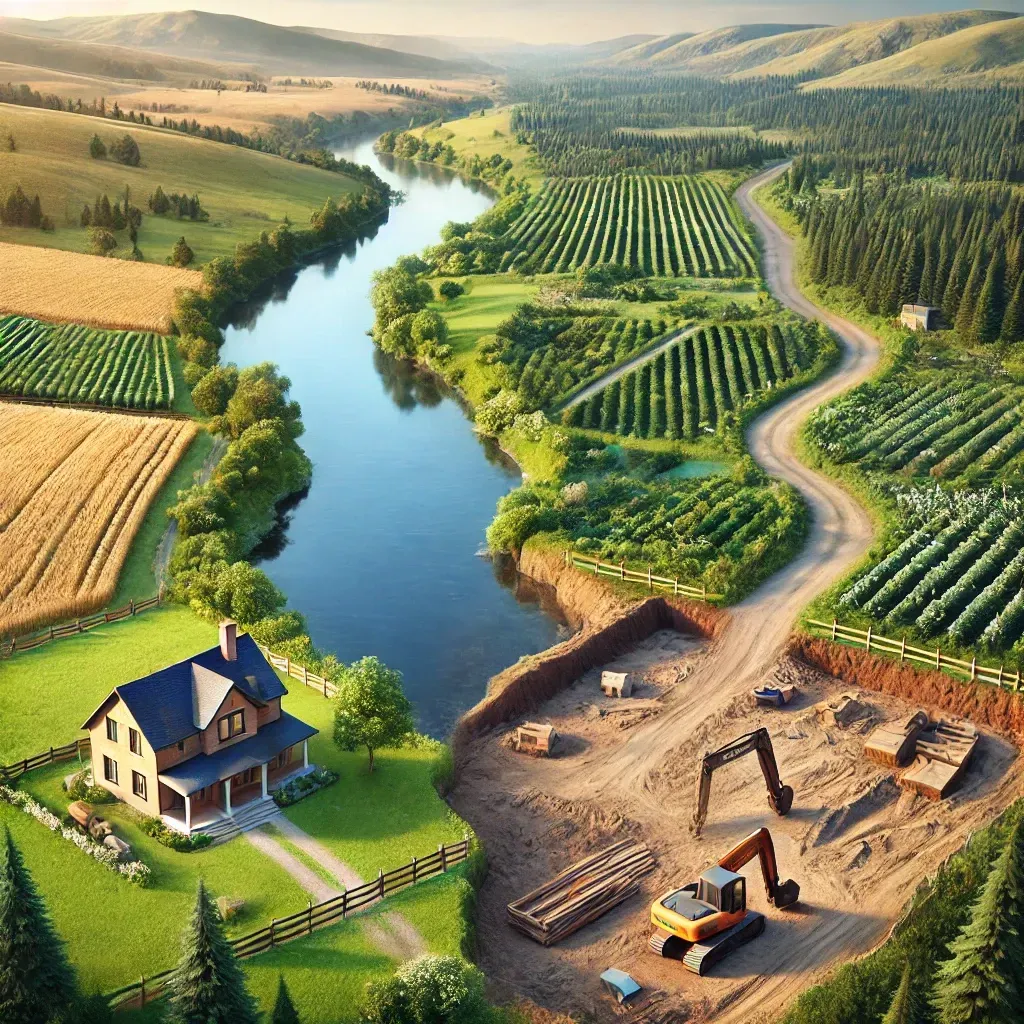
Pros and Cons of Buying Land in Georgia
Pros and Cons of Buying Land in Georgia
Investors often find that owning land can build wealth over time, particularly when acquired in burgeoning areas before they become overly developed. In Georgia, nearly 85% of land is still rural, agricultural, or conserved, presenting a unique opportunity for investors who understand regional expansions. With Georgia's population exceeding 10.7 million and an economy on the rise, purchasing land near developing areas like Savannah or Albany shows strong potential for appreciation. However, buying land comes with its own risks, including development uncertainties and ongoing costs that require careful consideration.
This guide explores the essential pros and cons of buying land in Georgia, covering everything from urban proximity to rural timber and agricultural land. Key factors include zoning regulations, infrastructure needs, tax implications, potential delayed returns, and resale limitations that buyers should be aware of before making a purchase.
An Overview of Georgia's Real Estate Market
Understanding Georgia’s diverse regions and their associated land prices is crucial. Metropolitan Atlanta features suburban land in master-planned neighborhoods with prices starting around $100,000 per acre. Farther out, in exurban areas, larger parcels of 5-10 acres range between $20,000 and $60,000 per acre, offering a retreat from city life without complete isolation. In contrast, rural lands south and west, including vast farms and woodlands, can cost as little as $3,000-$5,000 per acre.
Georgia's climate also varies considerably; the northern mountains are cooler, while southern areas enjoy warmer weather. Averaging temperatures from the 60s in January to low 80s in July, outdoor activities are plenty due to the temperate climate accompanied by typical summer thunderstorms.
Top Reasons to Buy Land in Georgia
**1. Affordable Land Prices**
Land in Georgia is comparatively affordable. With rural land costing about $1,500 per acre and exurban/suburban land around $3,000, buyers can often get more valuable properties for less. Prices in states like California and New York can skyrocket to $10,000 per acre, making Georgia's offerings seem like a bargain.
**2. Stunning Natural Landscapes**
From the Blue Ridge Mountains to picturesque pine forests, Georgia is blessed with beautiful scenery. Public areas including State Parks and National Forests provide endless recreation opportunities and owning private land gives access to even more landscapes.
**3. Ideal for Homesteading**
Georgia’s climate promotes self-sufficiency; mild winters allow for year-round growing seasons, and zoning laws typically favor agricultural activities, making it a great place for homesteaders.
**4. Community Spirit**
Life in Georgia tends to be slower-paced and friendly. The small towns and welcoming culture provide a sense of community that can be refreshing compared to city life, making it an attractive place for families and individuals.
**5. Retirement Benefits**
With its affordable cost of living, retirees find Georgia appealing. The modest income tax rate of 5.75%, along with exemptions for Social Security and pensions, helps seniors stretch their savings while enjoying a variety of recreational activities.
**6. Investment Potential**
The real estate market in Georgia is robust, particularly as Atlanta's metropolitan area continues to grow. Lands located near major employment centers may appreciate significantly, proving wise for long-term investment.
Challenges of Owning Land in Georgia
While there are numerous advantages to purchasing land in Georgia, potential buyers should also be aware of several issues:
**1. Rugged Terrain**
Many regions in Georgia are hilly or rocky, which can complicate building plans and lead to increased costs for site preparation.
**2. Humid Summers and Storms**
Summers are hot and humid, requiring adjustments for those not used to such climates. Thunderstorms and the potential for hurricanes necessitate emergency preparedness measures.
**3. Rural Limitations**
Living in rural areas often means significant distances to essential services such as grocery stores and healthcare, making research essential when selecting land.
**4. Wildlife and Pests**
The rural landscape comes with a mix of pleasant wildlife and bothersome pests. Chores like pest control and maintaining a safe environment become necessary.
**5. Permitting Requirements**
Building land involves navigating various permits depending on the zoning regulations, particularly in populated town areas.
**6. System Costs**
Rural properties typically lack municipal services like sewer; the cost of installing a septic system can add up considerably.
Key Tips for Buying Land in Georgia
1. Prioritize Location: Distinct regions have unique climates and amenities; know where you want to be and why.
2. Confirm Access: Ensure the property has legal access to avoid potential issues in the future.
3. Review Sale Details: Scrutinize all aspects included in the sale, including boundaries and rights.
4. Inspect the Terrain: Research the land’s condition, especially if it contributes to your intended use.
5. Be Wary of Deals: Cheap land may have hidden, costly issues; do your research.
6. Check Surroundings: Look for planned developments to understand long-term property value.
7. Budget for Extras: Prepare for costs exceeding just the land purchase, incorporating utilities and essential services.
8. Take Your Time: Rushing decisions can lead to buyer’s remorse; patience yields better results.
9. Permits Matter: Research local permitting requirements prior to making an offer.
Conclusion
Purchasing land in Georgia can be rewarding, offering scenic beauty and an affordable alternative for investment. However, understanding the challenges associated with ownership—from environmental factors to regulatory hurdles—is essential. For more information or inquiries, reach out at [email protected]. With the right planning and knowledge, owning property in Georgia can turn your aspirations into a reality.



